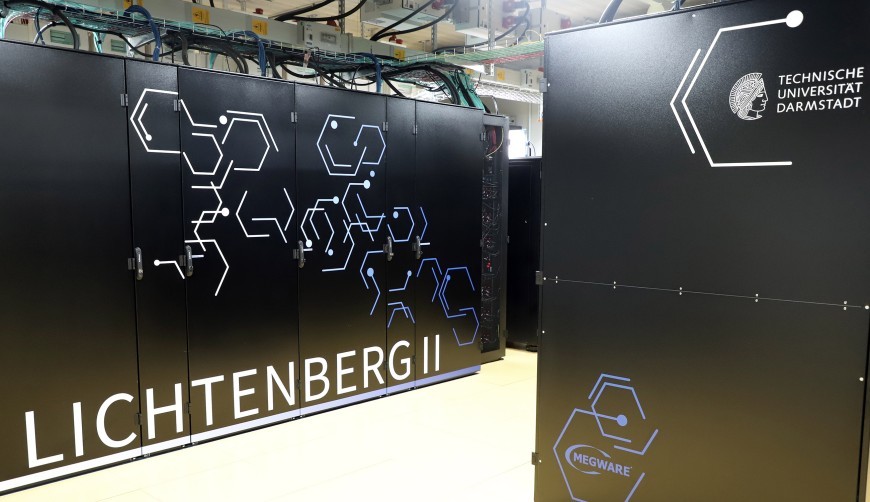Data Management lab is part of the new National High Performance Computing Network
Decision of the Joint Science Conference
2020/11/25

TU Darmstadt in the National High Performance Computing Network
In the future, TU Darmstadt will be a member of the National High Performance Computing (NHR) network funded by the federal and state governments. In its meeting on November 13, 2020, the Joint Science Conference (GWK) decided to admit TU Darmstadt together with RWTH Aachen University to the consortium. This was preceded by a competitive and science-led selection process. The TU Darmstadt has applied for funding of 75 million euros for the next ten years.
The National High Performance Computing Network includes university data centers of national importance as NHR centers. This form of cooperation ensures that scientists at German universities receive the best possible support for high-performance computing. Inclusion of data centers in the funding scheme is based on a multi-level, science-led competition. The new funding concept provides for the federal and state governments to jointly cover not only investment costs but also operating and personnel costs. Up to 62.5 million euros will be available annually for the entire NHR network.
“Being accepted into the group is a great success and confirms the long-term commitment of the state of Hesse to high-performance computing. My congratulations to the TU Darmstadt for this great achievement.
High-performance computers have long since become an indispensable tool for researchers – in all disciplines, whether in the natural and engineering sciences for increasingly complex simulations, in the life sciences for the evaluation of huge amounts of data, for example from clinical studies, or for the increasingly important applications of artificial intelligence. I am pleased that Hesse is making an important contribution to top-level research in Germany and Hesse within the framework of the National High Performance Computing Network,“ explained Hesse's Minister of Science Angela Dorn. ”Being accepted into the network is a great success and confirms the long-term commitment of the state of Hesse to high-performance computing. My congratulations to the TU Darmstadt for this great achievement.“
Both institutions have promoted Computational Engineering Sciences in joint projects, graduate schools and study programs. The focus was on engineering applications, especially in complex flow scenarios or energy conversion, in the design of materials, in engineering-oriented physics and chemistry. In recent years, research competencies in parallel computing, data management, and artificial intelligence have also been built up.
“This success continues the good cooperation between RWTH Aachen and TU Darmstadt.
Christian Bischof and Matthias Müller were very pleased about the decision in favor of NHR4CES: ”This success continues the good cooperation between RWTH Aachen and TU Darmstadt. Last year, we were successful with the National Research Data Infrastructure for Engineering Sciences consortium in the National Research Data Management competition. Now, with NHR4CES, we are developing an ecosystem for high-performance computing that advances simulation and data-based research, especially for the engineering-oriented, computer-based research disciplines in Germany."


